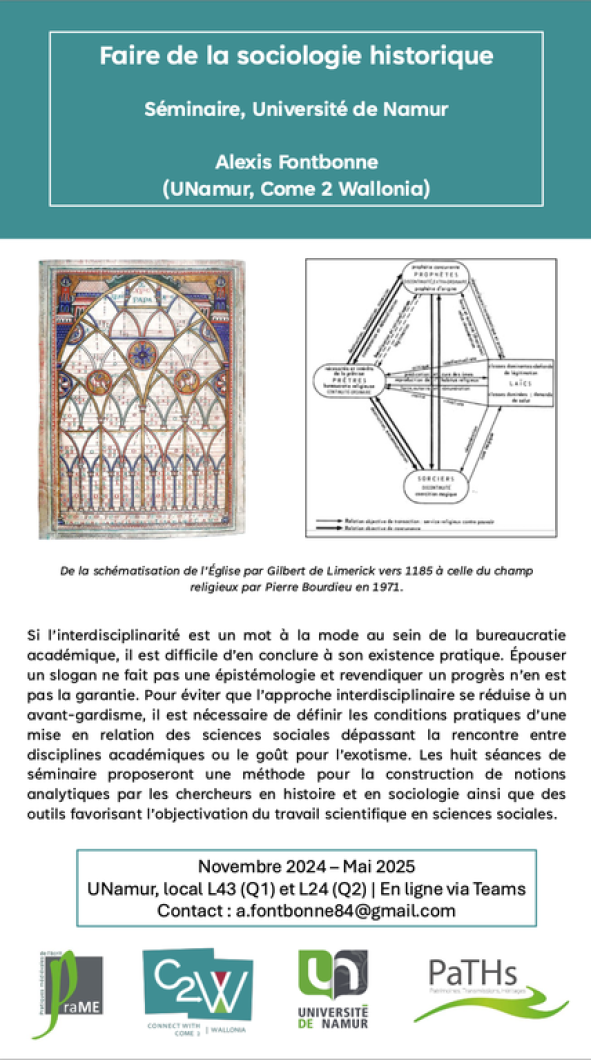If interdisciplinarity is a buzzword within the academic bureaucracy, it's hard to conclude that it exists in practice. Embracing a slogan does not an epistemology make, and claiming progress is no guarantee of it. To prevent the interdisciplinary approach from being reduced to avant-gardism, it is necessary to define the practical conditions for bringing together the different social sciences, going beyond the encounter between academic disciplines or the eclectic taste for the exotic. The eight sessions of the course presented below will seek to provide both a method for the construction of analytical notions by young researchers in history and sociology, and a set of tools favoring the objectification of scientific work in the social sciences.
Session 2 - The construction of notions: analytical operators, comparatism and singular concepts
As the division of labor between sociology as a producer of notions and history as a source of examples constitutes one of the main epistemological obstacles to a consistent practice of historical sociology, it is necessary to define a method for the elaboration of notions that can serve as analytical operators. In this context, the question of comparatism, a term covering diverse and sometimes contrary practices, appears central.
| Possibility of following the seminar online via Teams |
